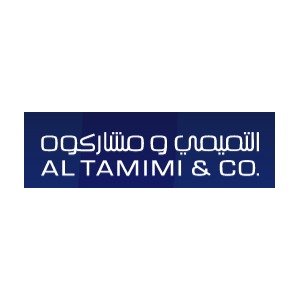Best Public-Private Partnerships (PPP) Lawyers in Riyadh
Share your needs with us, get contacted by law firms.
Free. Takes 2 min.
List of the best lawyers in Riyadh, Saudi Arabia
About Public-Private Partnerships (PPP) Law in Riyadh, Saudi Arabia
Public-Private Partnerships (PPP) are collaborative agreements between governmental authorities and private sector companies to fund, build, and operate projects that serve the public, such as infrastructure, utilities, healthcare, and education. In Riyadh, Saudi Arabia, the government has increasingly relied on PPPs to enhance development, promote efficiency, and diversify the economy under the Vision 2030 initiative. PPP projects typically involve long-term contracts where private entities share both the risks and rewards of delivering public services or assets.
To facilitate and regulate such partnerships, Saudi Arabia has implemented a comprehensive legal and regulatory framework. This framework is aimed at ensuring transparency, protecting the interests of all stakeholders, and attracting both international and local private investors to participate in national development projects.
Why You May Need a Lawyer
Engaging in a PPP project can be complex due to the involvement of multiple stakeholders, substantial financial commitments, and strict regulatory requirements. A lawyer with expertise in PPPs can help in various ways, including:
- Drafting and reviewing PPP contracts to ensure your interests are protected and contractual obligations are clear.
- Providing legal advice during negotiations with government bodies or private consortiums.
- Assisting with compliance under the latest local regulations and procedures set fourth by Saudi Arabian authorities.
- Helping to resolve disputes or misunderstandings that arise during the planning, execution, or operation of the project.
- Assessing project risks, conducting due diligence, and facilitating financial close.
- Guiding foreign investors through the requirements of entering and operating in the Saudi market.
Whether you are a governmental agency, a multinational investor, or a contractor, having an experienced PPP lawyer can streamline the process, mitigate risks, and safeguard your interests.
Local Laws Overview
Riyadh operates under Saudi Arabia’s broader legal and regulatory framework for Public-Private Partnerships. The key aspects relevant to PPPs include:
- Private Sector Participation Law (PSP Law): This law governs the processes, limitations, and criteria for private sector involvement in public projects and services.
- National Center for Privatization & PPP (NCP): The NCP is the primary governmental body responsible for overseeing PPP projects in coordination with sector-specific regulators.
- Project Tendering and Award Rules: These rules set the requirements for tendering, evaluation of bids, contract allocation, and transparency in the procurement process.
- Investment Regulations: Requirements exist for foreign and local investments, including formation of companies, minimum capital provisions, and sector-specific restrictions.
- Dispute Resolution Mechanisms: These might include arbitration, commercial courts, or specially constituted panels, as stipulated within PPP contracts or under Saudi law.
- Financial and Tax Implications: The legal framework addresses fiscal benefits and obligations for qualifying PPP projects, such as exemptions or incentives.
The legal environment is evolving as the Kingdom seeks to increase the number and scale of PPP projects. As such, staying updated and consulting professionals familiar with local law is crucial.
Frequently Asked Questions
What is a Public-Private Partnership (PPP) in Riyadh?
A PPP in Riyadh is a formal arrangement in which a government entity and a private company collaborate to deliver infrastructure or services traditionally provided by the government, combining public oversight with private sector expertise and capital.
What types of projects are eligible for PPP in Riyadh?
Common projects include transportation infrastructure (roads, airports, railways), utilities (water, electricity, waste management), healthcare facilities, schools, housing, and information technology systems.
Who regulates PPP projects in Riyadh?
The National Center for Privatization & PPP (NCP) is the main authority overseeing PPP projects, ensuring they align with national objectives and legal requirements.
Can international companies participate in PPPs in Riyadh?
Yes, international companies are encouraged to participate in PPPs, though they must comply with Saudi Arabia's foreign investment regulations and often partner with local firms.
How are PPP contracts awarded?
Contracts are typically awarded through a competitive tendering process managed by the relevant government body and adhering to strict transparency and evaluation criteria.
What risks are involved in PPP projects?
Risks can include construction delays, changes in law, regulatory compliance, financial viability, and disputes between parties. Contracts usually specify how risks are allocated between public and private partners.
How are disputes resolved in PPP projects?
Disputes can be resolved via negotiation, mediation, arbitration, or through the Saudi commercial court system, depending on the contract terms and applicable law.
Are there any incentives for PPP investments?
Yes, some PPP projects may offer fiscal incentives, such as tax exemptions or preferential treatment in land allocation, subject to government approval.
What are the typical steps in a PPP project lifecycle?
Steps include project identification, feasibility studies, tendering, contract negotiation, financial closure, construction, operation, and eventual transfer or expiration of the agreement.
How can a lawyer assist with PPP projects?
A lawyer can help navigate regulatory requirements, draft and review contracts, represent interests during negotiations, manage risk, and provide legal support during the resolution of complex disputes.
Additional Resources
For those seeking more information or guidance on PPPs in Riyadh, consider consulting the following organizations and resources:
- National Center for Privatization & PPP (NCP) - the central government authority for PPP projects.
- Ministry of Investment Saudi Arabia (MISA) - provides guidance for foreign investors.
- Council of Ministers - oversees national PPP policy formation and implementation.
- Saudi Commercial Courts - handles commercial and contractual disputes.
- Industry-specific regulatory bodies, such as the Ministry of Transportation or Ministry of Health, for sectoral regulations and opportunities.
- Local business associations and chambers of commerce for networking and further resources.
Next Steps
If you are considering participation in a Public-Private Partnership in Riyadh, Saudi Arabia:
- Start by identifying the sector and project type that interests you.
- Research current PPP opportunities and familiarize yourself with the relevant legal and regulatory requirements.
- Consult with a qualified lawyer who has expertise in PPPs and Saudi law to assess your position, conduct due diligence, and support your bid or negotiations.
- Engage with professional advisors for business, financial, and technical matters as required.
- Maintain communication with relevant governmental bodies such as the NCP to stay informed about new policies, initiatives, or project announcements.
Taking these steps ensures you are well prepared to participate in and benefit from the growing PPP market in Riyadh.
Lawzana helps you find the best lawyers and law firms in Riyadh through a curated and pre-screened list of qualified legal professionals. Our platform offers rankings and detailed profiles of attorneys and law firms, allowing you to compare based on practice areas, including Public-Private Partnerships (PPP), experience, and client feedback.
Each profile includes a description of the firm's areas of practice, client reviews, team members and partners, year of establishment, spoken languages, office locations, contact information, social media presence, and any published articles or resources. Most firms on our platform speak English and are experienced in both local and international legal matters.
Get a quote from top-rated law firms in Riyadh, Saudi Arabia — quickly, securely, and without unnecessary hassle.
Disclaimer:
The information provided on this page is for general informational purposes only and does not constitute legal advice. While we strive to ensure the accuracy and relevance of the content, legal information may change over time, and interpretations of the law can vary. You should always consult with a qualified legal professional for advice specific to your situation.
We disclaim all liability for actions taken or not taken based on the content of this page. If you believe any information is incorrect or outdated, please contact us, and we will review and update it where appropriate.

















